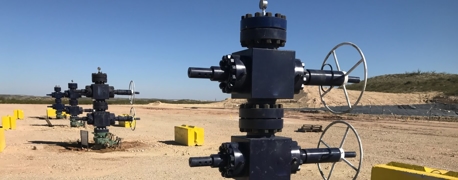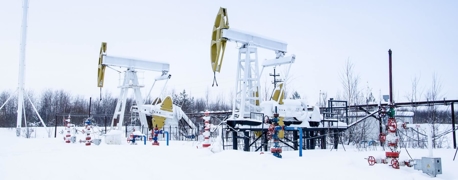When Oil & Railroad Companies Cut Costs, Employees Get Hurt

Imagine you're working for an oil company as a crude hauler, transporting oil from storage tanks in a tractor-trailer. Part of the job requires you to measure and report the oil's consistency, depth, and temperature by looking into the tank and taking a sample (a process known as tank gauging). It seems like a normal, part-of-the-job task, however, the company hasn't provided you with the necessary safety equipment to perform this inspection, nor has the company provided you with the information to recognize that this as a dangerous situation. Instead, to avoid spending money on your safety training and education, the company denies the presence of toxic gas at your work site. You're about to open the hatch to a lethal amount of hydrogen sulfide without any safety equipment. Would you do it? Or, without the property safety training and information, would you even know this is a bad idea? That's what happened to a 29-year-old worker and father in 2015, who was killed almost instantly.
In the four years prior, nine other workers in the industry had died in tank gauging accidents, according to the National Institute for Occupational Safety and Health (NIOSH). All of these tragic accidents could have been prevented if companies had invested in automatic tank gauging systems in the first place, preventing the need for human workers to open the hatch.
Oil companies (as well as railroad companies responsible for transporting crude oil) have become quite skilled at cutting costs wherever possible. While any business has to make financially prudent decisions, worker safety should be nonnegotiable. In this article, we'll examine just a few of the ways that oil and railroad companies sacrifice worker safety just for cost-saving measures.
Cutbacks on Maintenance & Repairs Mean More Preventable Accidents
According to the CDC, equipment accidents accounted for more than 25% of fatalities in the oil extraction industry from 2003 to 2013. When workers are daily interacting with dangerous machinery or need to transport hazardous materials like crude oil, it's all the more important to make sure those machines and vehicles are in good condition and won't malfunction. When oil companies decide it's more important to save money by delaying or straight up ignoring necessary repairs or maintenance, they callously put their employees at serious risk.
Here are a few examples of this pattern of behavior:
- In 2017, a worker on a wellhead platform was killed when a cable snapped, releasing heavy blocks that fatally struck the worker. According the lawsuit the family filed, the company had admitted to investigators that the broken cable was known to require repairs, which were never addressed.
- In 2018, a blowout preventer was flagged as needed urgent repairs ("improperly maintained and in a state of severe disrepair") before the faulty blowout preventer led to a deadly fire at a gas well, killing five workers at a drilling site in Pittsburgh County, Oklahoma.
- After the 2023 East Palestine derailment, investigations uncovered that workers were told to not mark railcars for repairs. In fact, one former railroad carman said she would be reprimanded for requesting repairs, since this would cost the train company time, time that the cars weren't delivering loads and making money. In fact, she was told that "it was OK to skip inspections."
While the train derailment in East Palestine didn't involve oil, railroads are regularly depended on to transport crude oil throughout the nation. The investigations that followed this derailment exposed negligent attitudes toward railway safety that seem to run industry-wide, thus affecting the safety of oil transportation, putting those workers and the communities they pass through at grave risk.
With this kind of ruthless cost-cutting approach, oil and railway companies alike are reluctant to pay even when it means keeping the machinery and locomotives their employees use in safe, good working conditions.
Chronic Understaffing Increases the Risk of Harm to Workers
As of July of 2022, the Texas oil industry had 334,000 workers employed. This is the nation's highest oil-producing state, and its employment numbers are roughly 37,000 lower than they were before COVID. Nationally, there were around 633,000 oil workers in 2022, which still falls significantly short of the pre-pandemic number of 707,000 workers.
Whatever railroad and oil companies may assert, having too few staff means that the laborers they do hire have a bigger workload, greater chances of fatigue, and at times less supervision. Each of these in turn can contribute to a greater risk of injurious or deadly accidents.
For instance, being understaffed can translate into increased hours for the workers who remain. In fact, the Journal of Petroleum Technology found that in 2021, when work hours increased by five percent, the number of total deaths went up from 14 to 20, those fatalities being the result of 15 accidents. There was also a 10% increase in injuries.
Within the last ten years, freight rail companies have spent upwards of $250 million just to lobby against federal safety regulations getting enacted. This includes measures such as automatic braking, and now also pushback against increased crew sizes. The increase in question? An additional person per train, if needed, to ensure that there are two-person crews for every train. The argument for each pushback against regulations is that they wouldn't advance safety at all, and they would cost too much.
It's one thing if a company simply doesn't have the money to pay additional people; it's another when they simply don't want to.
Evading Regulations Exposes Workers to Unsafe Working Conditions
The upstream oil (or oil production) industry in particular has found a way to wriggle out of certain safety standards through various exemptions. This includes exemptions from OSHA regulations that refineries and chemical plants have to follow in order to avoid chemical leaks and fires. When efforts are made to enforce such OSHA regulations on the upstream oil industry, there is pushback citing that these regulations wouldn't actually promote safety and would be costly, leaving workers without jobs. They will often cite their low injury rate precludes the need for such expensive regulations anyway.
According to a former head of OSHA, David Michaels, the oil production industry couldn't have the low injury rate that they claim, because the industry has "a very high fatality rate." Bluntly put, Michaels said, "They have a low injury rate because they often don't report their injuries."
Here's one example of how the oil industry gets away with flouting safety precautions: It gets around rules for exposure to benzene, a known carcinogen. OSHA generally enforces a limited exposure to benzene in oil refineries and other industries to an average of one part per million over the course of an 8-hour shift, and five ppm within a 15-minute interval. Even with these precautions, the rate of acute myeloid leukemia tends to be higher in oil refinery workers because of their benzene exposure, according to the American Cancer Society.
However, on the oil production side of things, companies can legally expose their workers to a whopping 10 ppm of benzene over the course of eight hours. They don't even have to abide by a short-term limit for benzene exposure.
Instead of investing in proper safety equipment and safer processes, oil companies continue to put their employees at risk. In many instances, they technically haven't violated any regulations, so they won't have to pay fines either.
The Far-Reaching Effects of Oil Company Negligence
Whether it's putting employees at risk through overwork due to understaffing, exposure to toxic substances due getting out of regulations, or failing to keep dangerous machinery in good repair just to save some money, the oil and railroad corporations pocket the profit while workers and their families are left to deal with the steep costs.
These cutbacks lead to more workers suffering accidents, suffering injuries that are more serious, and even lead to more fatal accidents. In fact, the fatality rate of workers in U.S. oilfield from 2008 to 2017 was a near match for the number of U.S. soldiers perishing in war in Afghanistan during that same time. More than 1,500 oil workers had died in the U.S. by that point. Between 2008 and 2018, OSHA leveled more than 10,800 citations against the oil extraction industry for violations, with the majority of these violations being considered "serious" enough to risk "death or serious physical harm" to workers.
The families of workers are seriously affected by company negligence as well. Of course, there's the financial strain they face, not just in losing a family member or having a severely injured relative who no longer earns income, but also having to pay for the related expenses, from healthcare to funeral and burial costs. There are also physical costs. According to an American Journal of Industrial Medicine study, the families of those who had a relative seriously injured on the job were 15% more likely to suffer musculoskeletal issues themselves, as they also shoulder the physical costs of helping a disabled or injured loved one. Relationally, there is also the higher risk of a couple splitting up as well.
When companies cut corners to save money, communities also suffer, as seen in the East Palestine derailment catastrophe, and the communities along the Gulf of Mexico due to the Deepwater Horizon tragedy, which involved numerous, preventable equipment failures. While the long-term effects of the train derailment have yet to be fully seen, BP will be making payments, and the National Oceanic and Atmospheric Administration (NOAA) will be working to restore the Gulf until 2031. While this can help ameliorate the damage the explosion and oil spill has had on fishing, tourism, and other industries, it can do nothing to undo the losses and damages inflicted on communities and even wildlife as a result.
Oil Companies Need to Be Held Responsible
What will oil and gas companies pay for? Like freight rail companies, they will spend millions to lobby against heightened safety rules. Before the East Palestine trail derailment disaster, oil and gas companies had already spent $152 million to fight against sensible safety measures such as improved train braking mechanisms (which would have mitigated the impact of the derailment).
When regulations won't keep companies in line, lawsuits can not only help injured workers and their families recover compensation for their lost income, pain and suffering, and other related damages, but it can also help to hold oil companies accountable. If oil companies want to risk worker safety by cutting costs, then they should be made to pay. In fact, lawsuits can cost companies far more than government citations do, and thus can be powerful ways of forcing companies to change how they operate, creating safer working conditions for everyone.
- Categories


